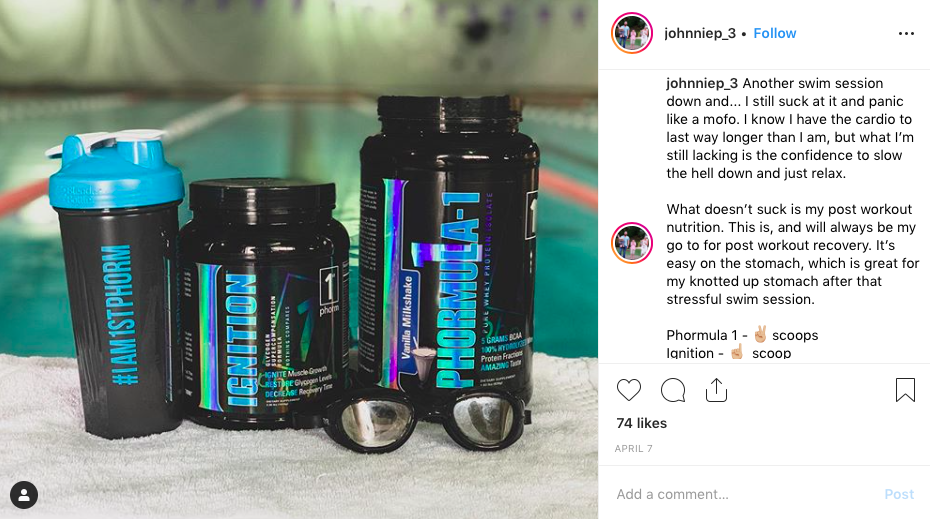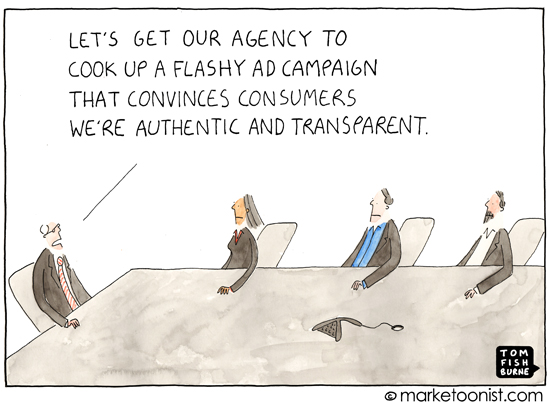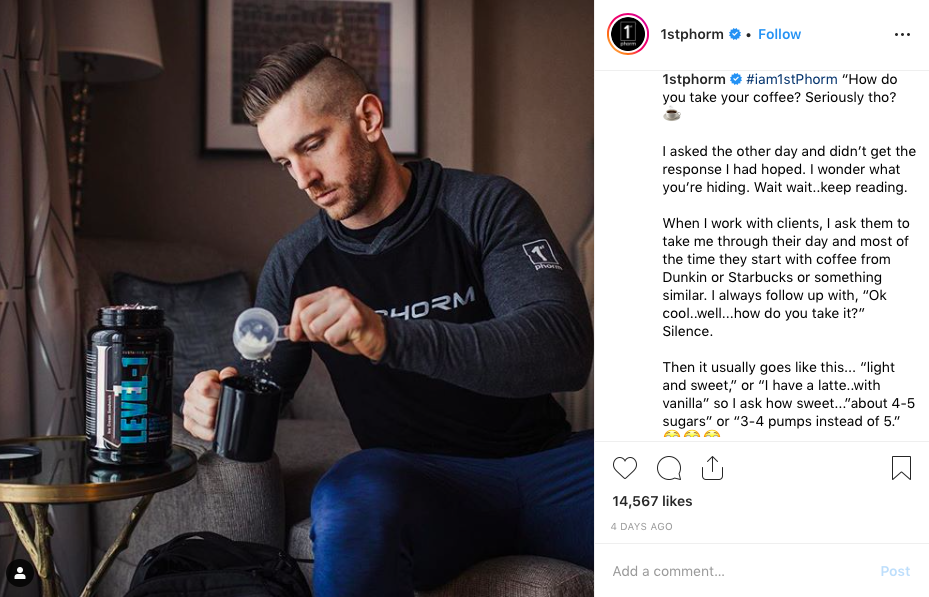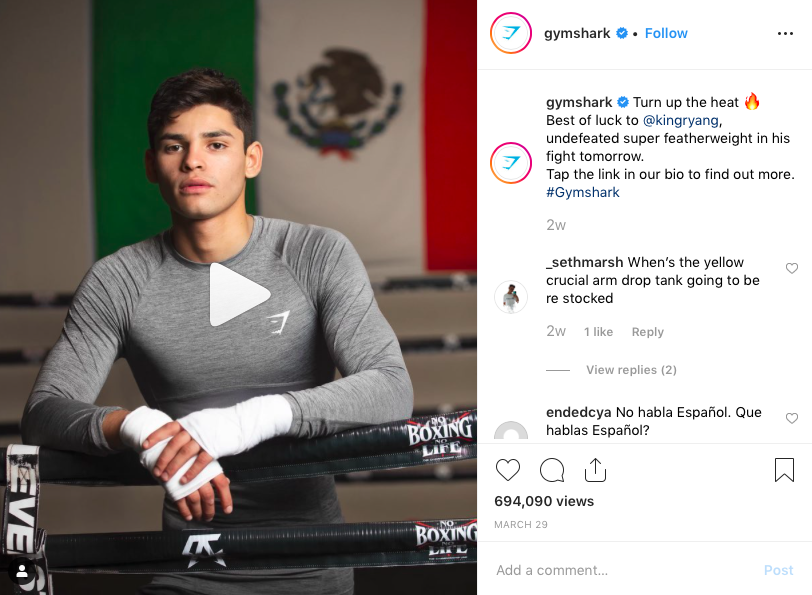Why Authenticity Matters in Influencer Marketing (And How to Be Authentic).
Influencer marketing has existed since the age of dawn. Back in the days, people looked up to leaders and other influential people. After that, celebrities were all the fuzz, and now, social media is dominating the influencer market. The only difference now is that social media has rewritten the rules what influencer marketing really is, and now, authenticity is something that has gotten more attention than ever. Not necessarily because we are more influenced, but rather because influencer marketing has become a commodity – for everyone.
In an Influencer Marketing survey 87% of respondents said that “influencer marketing’s top benefits entail creating authentic content about their brand.”. And this the single most important reason to why influencer marketing is so effective and can generate results that other marketing sources can only dream about. It’s because the marketing campaigns that the influencers do comes off as authentic and trustworthy. But not all though!
You can’t jump into an influencer marketing campaign and expect it to be authentic and generate amazing results. Because that’s not how it works. I wish it would be that easy though.

We now know that authenticity is extremely important in influencer marketing, but there are so many more questions that need answering.
What is it? How can you create an authentic influencer campaign? And why is it important?
Those are questions, among several others, that I’ll give answers to in this article.
Influencer marketing has become a commodity
Now, what do I mean when I say that influencer marketing has become a commodity?
Well, back in the days, people only looked up to a select group of people in the world. These people were often leaders, actors, or singers/musicians. And because so many people looked up to them, companies saw the value of having these people represent, and promote their brands.
People trust recommendations from someone they look up to.
Today, people may still look up to leaders, actors, and singers, but today, there’s a new group of people that people look up to, and that is the social media influencers.
And the most interesting part is that social media allows virtually anyone to become a social media influencer, build an audience, and become a go-to leader within their industry. This is something that just wasn’t possible back in the days.
What does this have to do with authenticity in influencer marketing?
Well, not a whole lot, but to do some kind of connection, what this new group of social media influencers does is give brands a larger selection of individuals to represent their brands.
Today, there are influencers in virtually every industry on social media, and because there’s a larger selection, brands can team up with the individuals who are the most perfect fit, and thus better reach their target audience, but also run a campaign that comes off across as more authentic, since it is promoted by an individual who is actually relevant.
What is Authenticity in Influencer Marketing?
No brand can call themselves 100% authentic, right?
All brands have objectives, and everybody knows that all the brand want to do is sell more. Therefore, when the brand says something about itself and its product, people expect them to present themselves in the best light possible. This means that people are always listening to the words of brands with a little suspiciousness and caution, making it impossible for brands to be trusted by their audience to 100% percent.

What I mean is that, can you trust any company by 100%? The answer is probably no because all companies have agendas which, is backed by their actions.
Authenticity and trustworthiness go hand-in-hand because someone who is authentic also comes off as trustworthy. And when you are authentic, it means that you stay true to your values, your personality, and brand.
When you team up with influencers, it should be no difference, but more on this later.
But as a company, the goal is always to get your audience to trust you to an as large extent as possible because this will help you get your message across much better. But since most companies struggle with this, the upside is that you can partner with influencers to mediate your messages for you.
Both brands are at stake
It’s important to know that when you team up with an influencer, both brands are at stake.
If you team up with an influencer who creates a campaign that doesn’t come off as authentic, both you and the influencer will lose trust from your respective audiences.
A successful partnership between influencer and brand is a partnership with someone who breathes your brand’s values. This is also why celebrity influencers have lost their efficiency, and has allowed smaller and more niched, so-called micro-influencer to grow in popularity. The reason being is that celebrities who promote brands, in most cases would never actually use the products they are promoting.
Good influencers, on the other hand, only partner with brands who they truly love and enjoy, and this is the reason why these type of partnership generate the best results. Because people trust them!
Therefore, don’t get discouraged if an influencer says no if you ask them for a partnership because it probably wouldn’t have been a good one either way.
Let’s look at how you can make your influencer campaign authentic.
How to create an authentic influencer campaign
1. Work with influencers who resonate with your brand
This is the single most important part of a successful influencer partnership.
The influencer you partner with is what will have the biggest impact if your campaign becomes an authentic success or an inauthentic fail.
When choosing influencer, there are a few things you need to think about. First, you need to make sure that the influencer you plan to partner with resonates with your brand.
Ask yourself: would the influencer be a customer of your brand even if they wouldn’t partner with you?
If yes, then perfect! This is the type of campaigns that come off most authentic because people will actually believe their words. What’s even better is if they are already using your products because in this case, they can talk about their own personal experiences, and how it has improved their life, talking from the heart. When people talk from the heart and from their own experiences, you’ll be able to tell thus making the campaign more authentic.

The last thing you should do is select an influencer solely because of their follower count. There are many examples where micro-influencers have generated better results than regular influencers just because they have a higher engagement and a more engaged and targeted audience. Moreover, they’re more trusted and authentic. At least they’re considered to be.
Do they have a similar visual theme? If this is the case, your campaign will offer a more seamless experience that makes your brand and your influencer seem more connected.
While I wish I didn’t need to say this, I still see brands that aren’t following the principle of working with an influencer who is in the same industry and niche as themselves.
And it’s highly unfortunate, because they’re missing out on tremendous opportunities, and they are certainly not creating authentic campaigns. If you partner with an influencer who is in a completely different niche as you, the influencer’s followers will simply not be interested in your brand!
If you partner with an influencer who is in the same niche as you, they have been able to accumulate followers and fans that are genuinely interested in their niche, and therefore, they’ll also be interested in your brand if they recommend it to their followers.
2. See it from your customer’s point of view
In order to create an authentic influencer campaign, you need to tell a story behind your product and get the influencer to talk about how it has helped them, and how it is helpful for people in their niche (their followers). Just because the content is clearly sponsored, doesn’t mean that the campaign will lose its authenticity. But in order to create a campaign that doesn’t come off as inauthentic because it is sponsored demands practice and the right actions. People have no interest in being sold another product. Especially not on social media, because people go there to find inspiration, be entertained, and see what their friends are up to.
Not because they can’t wait to get ads shoved down their throat.

Instead, by creating influencer campaigns that resonate with your audience, and appeal to them emotionally, you will be able to impact them and encourage them to learn more about your brand and products -without forcing them.
As a company, negative things will have a much greater impact than positive things, and therefore, always put yourself in your customers’ shoes to both mediate your story to them, but also to be able to be trusted in a different way.
3. Give the influencer freedom
A big mistake that brands often commit is wanting too much control over the campaign.
But ask yourself: who knows the influencer’s audience best?
The influencer or the brand? It’s an obvious answer.
The influencer knows what type of content that resonates well with their followers and thus generated the highest engagement.
This is something that you as a brand wants because if the post of the influencer generates great results it also means that the post will also generate better marketing results for your brand.
Some brands are trying to decide everything from the caption, to the post, and everything in between in the belief that it will make for a better campaign, but what that only does is grasps the authenticity of the campaign and throw it in the garbage. If the influencer shares a post with a language that isn’t their true personality, their followers will quickly know that something is up – leading to an inauthentic campaign.
How are you working to make your influencer campaigns more authentic?
I’d love to hear about it!
4. Be honest
This touches briefly on some of the things I’ve already mentioned, but being honest lays the foundation for making sure your audience actually trust what you have to say.
The best part about influencer marketing is that if you partner with an influencer who has already won the trust of their audience, the message will have a much easier time reaching and resonating with your target audience. The best part is that if you as a company struggle with getting your customers to trust you, you can take help from an influencer who has already won their followers’ trust.
It’s self-explanatory but never compromise on the truth, because if the word that you have done so gets around, you’ll damage your trust and authenticity for a long time to come.
5. Use all methods at your disposal to be more authentic
Authenticity goes hand-in-hand with not only trust but with being human. Humans don’t build relationships with brands, they build relationships with other humans. People don’t trust logos, they trust humans – their peers.
It’s very basic, really. If a person is known to lie a lot, people will take their words with a large grain of salt. However, if someone is known to never lie and always tell the truth, people will trust what they are saying.
As a result, when you partner with influencers for a campaign, it can actually be beneficial to have them be completely honest when they talk about your brand. If there’s something about your product that you don’t like, then have them mention it. And at the same time, have them mention everything they absolutely love about it. People’s BS detectors are very fine-tuned in today’s day and age, and so by being more authentic, you’ll naturally get more trust. It’s not more complicated than that!
Conclusion
Authenticity is crucial for a successful influencer marketing campaign.
But the fact is that the principle of being authentic (and running an authentic influencer marketing campaign) doesn’t have to be so complex.
Begin by reverse-engineering trust and authenticity, and you’ll realize that the same principles as having trust for a human being go for having trust for a company and an influencer campaign.
Be honest and make sure that everything you (or an influencer) say is true, accurate, and aligns with your brand and brand’s values, and you’ll be fine.


